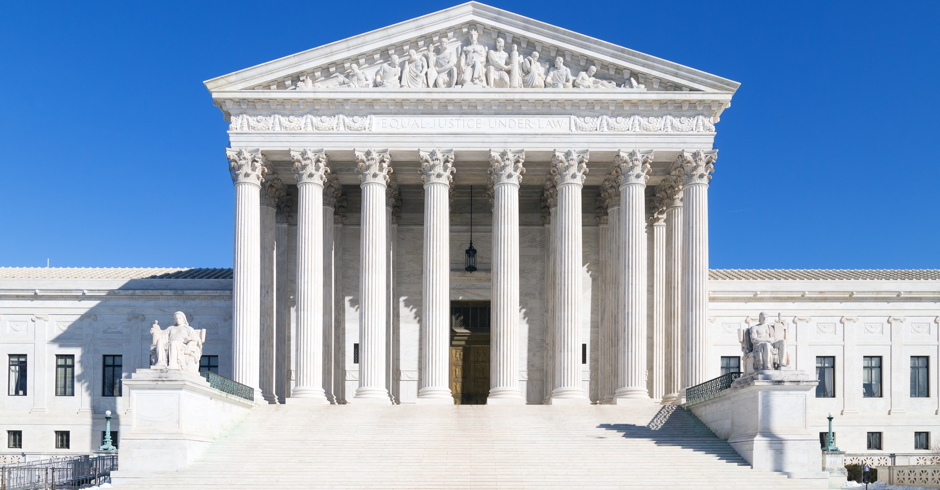News
Government Agencies Limited in Second Supreme Court Ruling This Week

The Supreme Court has made its second ruling this week that limits government agencies’ ability to act on Friday.
Friday morning, the Court released its ruling in Loper Bright Enterprises v. Raimondo. Prior to the ruling, fisheries were required to allow federal officials on board their ships to make sure that overfishing doesn’t occur; the base of the suit is that the fisheries objected to having to pay the salaries for these officials.
The legal precedent at the center of the case is what’s known as the Chevron doctrine, based on the 1984 case Chevron U.S.A. Inc v. Natural Resources Defense Council, Inc. That ruling held that government agencies have the ability to interpret statutes in their sphere of influence where ambiguity exists, even if judges may disagree about an interpretation.
READ MORE: Supreme Court Throws Out Perdue Bankruptcy Plan That Protects Sackler Family
In this case, the National Marine Fisheries Service has interpreted the law to mean that fisheries have to pay officials’ salaries, while the fisheries argued that this overstepped the agency’s bounds.
Critics of this ruling, including Justice Neil Gorsuch, have argued that Chevron gives agencies too much power.
“[Gorsuch] argues that it is fundamentally the province of courts to say what the law is, and that Chevron makes it too easy for courts to simply find ambiguity in text and then defer to government agencies. He and others argue that it systematically tilts the power in a case in favor of the government and allows judges to abdicate their responsibility to engage in vigorous statutory review,” Sanne Knudsen, professor of environmental law at the University of Washington School of Law, said in a 2023 interview.
In Friday’s 6-3 ruling, made along ideological lines, the Court agreed with Gorsuch’s take. The opinion, written by Chief Justice John Roberts, explicitly overrules Chevron.
“[C]ourts need not and under the APA may not defer to an agency interpretation of the law simply because a statute is ambiguous,” Roberts wrote.
In a concurring opinion, Justice Clarence Thomas added that Chevron violates the separation of powers, as it “compels judges to abdicate their Article III ‘judicial Power,'” and “permits the Executive Branch to exercise powers not given to it.”
The mention of separation of powers is interesting, as Justice Sonia Sotomayor’s dissent in the other ruling that limited an agency’s powers this week accuses the Court of threatening the concept of separation of powers.
“The majority today upends longstanding precedent and the established practice of its coequal partners in our tripartite system of Government. Because the Court fails to act as a neutral umpire when it rewrites established rules in the manner it does today, I respectfully dissent,” Sotomayor wrote.
In that case, SEC v. Jarkesy, the Court ruled that the Securities Exchange Commission was unable to issue civil penalties without a trial. The SEC was initially given this power as part of the 2010 Dodd-Frank Wall Street Reform and Consumer Protection Act.
The Court struck this element of Dodd-Frank down in a 6-3 ruling, again along ideological lines. The court ruled, in another decision written by Roberts, that it violated the Seventh Amendment, the right to a jury trial.
Enjoy this piece?
… then let us make a small request. The New Civil Rights Movement depends on readers like you to meet our ongoing expenses and continue producing quality progressive journalism. Three Silicon Valley giants consume 70 percent of all online advertising dollars, so we need your help to continue doing what we do.
NCRM is independent. You won’t find mainstream media bias here. From unflinching coverage of religious extremism, to spotlighting efforts to roll back our rights, NCRM continues to speak truth to power. America needs independent voices like NCRM to be sure no one is forgotten.
Every reader contribution, whatever the amount, makes a tremendous difference. Help ensure NCRM remains independent long into the future. Support progressive journalism with a one-time contribution to NCRM, or click here to become a subscriber. Thank you. Click here to donate by check.
 |















